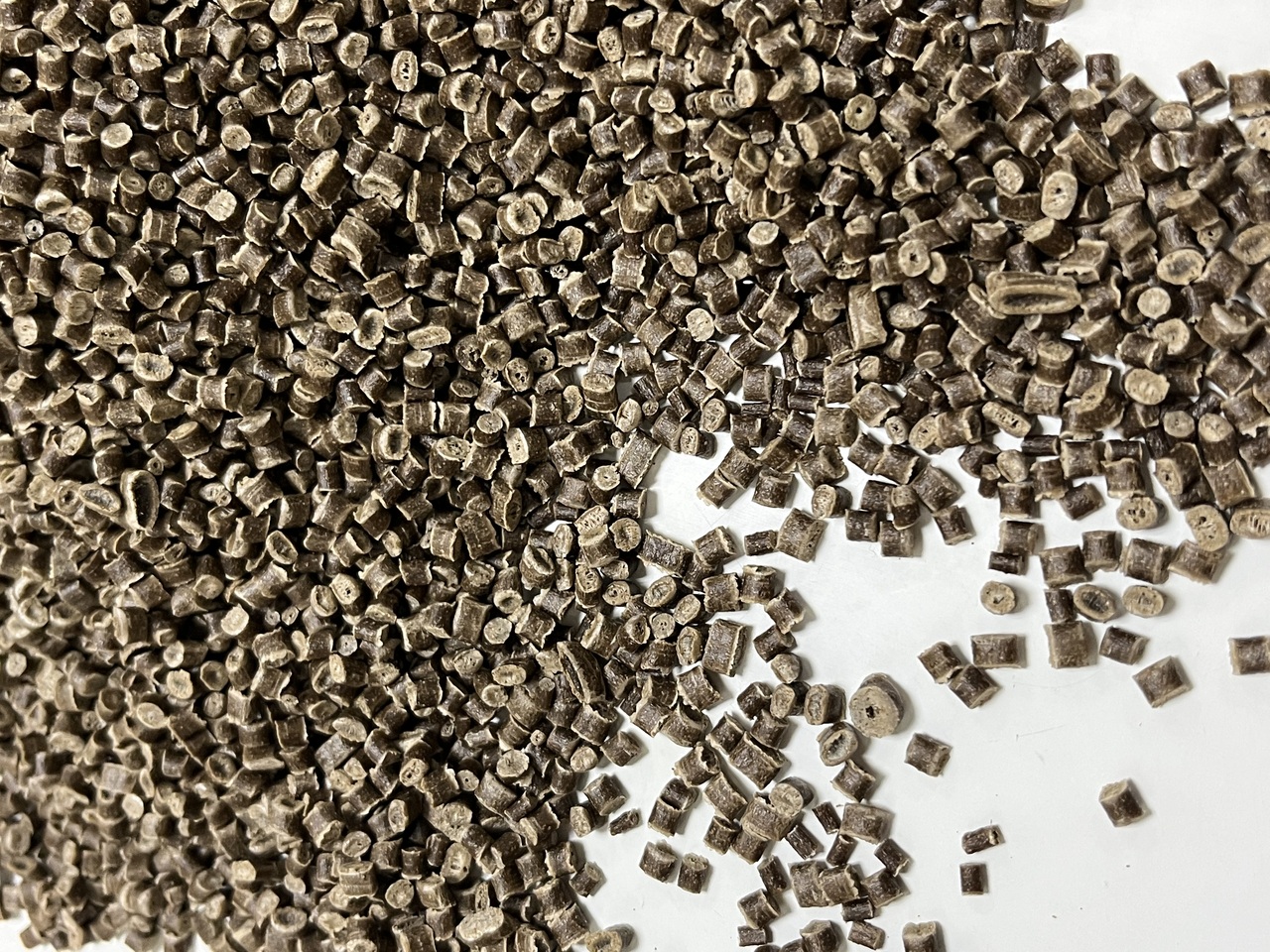Reshaping the Plastic Industry with Biobased and Biodegradable Plastics
The plastic industry has played a significant role in our modern society, providing us with a wide range of convenient and versatile products. However, the environmental impact of traditional plastics has become increasingly evident, leading to a growing need for sustainable alternatives.
Biobased and biodegradable plastics have emerged as promising solutions that can reshape the plastic industry and help us create a more sustainable future.
Need for sustainable alternatives
The need for sustainable alternatives to traditional plastics has become critical due to the negative impact of plastic waste on the environment, particularly the oceans. Plastic pollution has been found to be harmful to marine life, and plastic waste has been shown to leach toxic chemicals that can harm both wildlife and humans. Additionally, traditional plastics are derived from petroleum, a non-renewable resource, and the production of plastic often involves the use of harmful chemicals and energy-intensive processes.
One possible solution is the use of bioplastics, which are made from renewable resources such as plants and can be designed to be biodegradable or compostable.

Bioplastic's Lifecycle is a significant reason made it becomes a promising material for future.
Other potential solutions include the use of alternative materials such as products from biobased and biodegradable plastics, as well as the reduction of plastic usage through policies such as taxes on single-use plastics and consumer education. Ultimately, it will require a concerted effort from industry, government, and consumers to find sustainable alternatives to traditional plastics and reduce the negative impact of plastic waste on the environment.
Understanding Biobased and Biodegradable Plastics
Biobased plastics
Biobased plastics, also known as bio-derived plastics or bio-plastics, are a type of plastic material derived from renewable sources such as plants, algae, and agricultural waste. Unlike traditional plastics that are derived from fossil fuels like petroleum, biobased plastics offer a more sustainable alternative by reducing our reliance on finite resources.
There are different types of biobased plastics, including polylactic acid (PLA), polyhydroxyalkanoates (PHA), and starch-based plastics. PLA is derived from fermented plant sugars, while PHA is produced by bacterial fermentation of renewable carbon sources. Starch-based plastics are made from the extraction and modification of starch, typically derived from corn or potatoes. Each type of biobased plastic has its own unique properties and applications.
Biodegradable plastics
Biodegradable plastics are plastics that can be broken down and decomposed by the action of living organisms into water, carbon dioxide, and biomass. This is in contrast to traditional plastics that can take hundreds of years to degrade and often end up polluting the environment. Biodegradable plastics can be made from renewable resources such as plant starch, which makes them more environmentally friendly than petroleum-based plastics.
Difference between biobased and biodegradable plastics
Biobased and biodegradable plastics are related but different concepts:
Biobased plastics are made, either partially or fully, from renewable biological resources such as plants, whereas traditional plastics are made from non-renewable fossil fuels.
Biodegradable plastics, on the other hand, are plastics that can break down and decompose into natural substances such as water, carbon dioxide, and biomass, typically through the action of microorganisms.
Not all biobased plastics are biodegradable, and not all biodegradable plastics are biobased. The focus of biodegradable plastics is on their ability to break down naturally under specific environmental conditions.
Both types of plastics have their advantages and considerations, and the choice depends on factors such as end-use requirements, waste management infrastructure, and overall sustainability goals.
Economic and Business Advantages
Market demand for sustainable products
- Growing Consumer Awareness: There is an increasing global awareness and concern about environmental issues, including plastic pollution and climate change. Consumers are actively seeking sustainable and eco-friendly products, including packaging and consumer goods. Biobased and biodegradable plastics meet this demand and can enhance brand reputation and customer loyalty.
- Meeting Regulatory Requirements: Governments and regulatory bodies are implementing stricter regulations and policies to reduce the use of traditional plastics and promote sustainable alternatives. Businesses that adopt biobased and biodegradable plastics can stay ahead of regulatory requirements, avoid penalties, and demonstrate their commitment to environmental responsibility.
- Access to Green Markets: Biobased and biodegradable plastics provide businesses with access to green markets and eco-conscious customers. These markets often offer growth opportunities and can attract environmentally conscious consumers who prioritize sustainable products.
Cost-effectiveness and resource efficiency
- Reduced Material Costs: Biobased plastics can be derived from renewable resources, such as agricultural crops or plant-based materials. These resources often have lower costs compared to fossil fuels, providing potential cost savings in the long run.
- Waste Management Efficiency: Biodegradable plastics break down naturally over time, reducing waste accumulation and disposal costs. Businesses can benefit from lower waste management expenses and potential savings on landfill fees.
- Regulatory Compliance: Many governments and regulatory bodies are implementing stricter regulations on plastic use and waste management. By adopting biobased and biodegradable plastics, businesses can proactively comply with these regulations, avoiding fines and penalties associated with non-compliance.
- Innovation and Differentiation: Investing in biobased and biodegradable plastics can drive innovation within a business. It encourages research and development to create new sustainable products and packaging solutions, allowing companies to differentiate themselves in the market and gain a competitive edge.
- Long-term Cost Savings: While the initial costs of biobased and biodegradable plastics may be higher than traditional plastics, long-term cost savings can be achieved through reduced waste management expenses, potential lower material costs, and improved operational efficiency.
Applications of Biobased and Biodegradable Plastics
Biobased and biodegradable plastics have a variety of potential applications in different industries, including:
- Packaging materials: as these materials can be used to make bags, containers, and other packaging products. Biodegradable plastics can help reduce the amount of plastic waste in the environment by breaking down more quickly than traditional plastics.

Food container made from coffee bio-composite
- Consumer goods and products: such as toys and household items, can also be made from biobased and biodegradable plastics. These materials offer a more sustainable alternative to traditional plastics and can help reduce the environmental impact of these products.
- Automotive and construction industries: for example, biobased plastics can be used in car interiors to replace traditional petroleum-based materials, while biodegradable plastics can be used in construction materials to reduce waste and improve sustainability.
The potential applications of biobased and biodegradable plastics are wide-ranging, and as technology continues to improve, these materials are likely to become more prevalent across a variety of industries.
Biobased plastics suggestion for variety application of industries
Biobased plastics offer a promising sustainable alternative to traditional plastics in various industries. One potential application is in the production of coffee biocomposites made from coffee grounds and recycled plastics from AirX. This presents an exciting opportunity to reduce waste and create a circular economy by repurposing materials that were once considered waste.

Coffee biocomposites can be used in a variety of applications and by replacing plastic with biomass, these materials can help reduce environmental pollution if disposed of properly.
The production of coffee biocomposites from recycled plastics and coffee grounds from AirX is just one example of the versatile applications of these materials. As technology continues to advance, we can expect to see a wider range of biobased plastic products and materials in the future at AirX - a bio manufacturer specializes in producing bio-based composites using recycled carbohydrates derived from various by-products like coffee grounds, coconut husk, husk, and bamboo for carbon negative materials.
Contact us
AirX is the world's first carbon-negative bio-material made from coffee grounds manufacturer.
We specialize in producing bio-based composites using recycled carbohydrates derived from by-products such as coffee grounds, coconut husk, husk, and bamboo. Our goal is to promote sustainability through the use of eco-friendly materials.
We are always here to help and provide the best service possible. If you have any questions or would like to receive advice and feedback directly from our sales staff, please do not hesitate to contact us. You can reach us through:
- Whatsapp: +84 969 742 950
- Email: [email protected]
We look forward to hearing from you!

